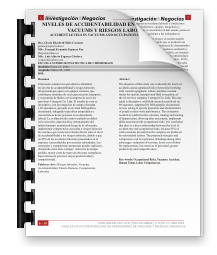SUBSIDIOS Y CONSUMO DENTRO LA ECONOMÃA BOLIVIANA
IntroducciÃģn, La economÃa Moral y la PolÃtica subsidiaria en Bolivia, El multiplicador de la demanda, MetodologÃa, DiscusiÃģn y Conclusiones.
Resumen
El estudio analiza los efectos de la aplicaciÃģn de polÃticas y programas de dotaciÃģn de subsidios en Bolivia. TeniÃĐndose como objetivo central distinguir el impacto de estas polÃticas en el aumento de la demanda agregada de la economÃa y el incremento del consumo y/o inversiÃģn. Partiendo del cÃĄlculo aproximado de la propensiÃģn marginal a consumir â PMC- de la economÃa por tipo de consumidor y asà obtener el multiplicador de la demanda.
La implementaciÃģn de estas polÃticas ha generado un incremento en los ingresos mensuales de las poblaciones beneficiarias correspondiente a los quintiles inferiores de ingreso. Si bien mejora sus condiciones de vida, modifica su consumo al corto y mediano plazo; por lo que el efecto dinÃĄmico del multiplicador es menor sobre la demanda agregada del paÃs y en consecuencia en el PIB nacional. En tanto un subsidio no monetario, podrÃa generar un movimiento econÃģmico regional.
Palabras clave: Bienestar econÃģmico, EconomÃa Moral, multiplicador de la demanda, propensiÃģn a consumir, subsidios.
Abstract
The study analyzes the effects of the application of subsidy policies and programs in Bolivia. Having as a central objective to distinguish the impact of these policies in the increase of the aggregate demand of the economy and the increase of consumption and / or investment. Starting from the approximate calculation of the marginal propensity to consume - PMC- of the economy by type of consumer and thus obtain the demand multiplier.
The implementation of these policies has generated an increase in the monthly income of the beneficiary populations corresponding to the lower income quintiles. Although it improves their living conditions, it modifies its consumption in the short and medium term; so the dynamic effect of the multiplier is less on the aggregate demand of the country and consequently on the national PIB. As a non-monetary subsidy, it could generate a regional economic movement.
Key words: Economic welfare, Moral Economy, demand multiplier, propensity to consume, subsidies.

Derechos de Autor
La revista âInvestigaciÃģn & Negociosâ reconoce y respeta los derechos patrimoniales y morales sin restricciÃģn alguna.
Descargo de Responsabilidades
El contenido de los artÃculos publicados en la Revista âInvestigaciÃģn & Negociosâ es de absoluta responsabilidad de sus autores.
Costos de publicaciÃģn de artÃculos
El proceso de publicaciÃģn y presentaciÃģn de artÃculos para la Revista âInvestigaciÃģn & Negociosâ no tiene ningÚn costo para los autores.




